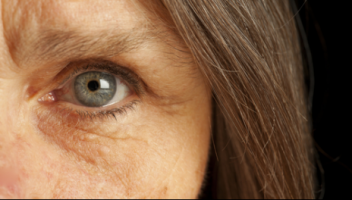- Home
- Editorial
- News
- Practice Guidelines
- Anesthesiology Guidelines
- Cancer Guidelines
- Cardiac Sciences Guidelines
- Critical Care Guidelines
- Dentistry Guidelines
- Dermatology Guidelines
- Diabetes and Endo Guidelines
- Diagnostics Guidelines
- ENT Guidelines
- Featured Practice Guidelines
- Gastroenterology Guidelines
- Geriatrics Guidelines
- Medicine Guidelines
- Nephrology Guidelines
- Neurosciences Guidelines
- Obs and Gynae Guidelines
- Ophthalmology Guidelines
- Orthopaedics Guidelines
- Paediatrics Guidelines
- Psychiatry Guidelines
- Pulmonology Guidelines
- Radiology Guidelines
- Surgery Guidelines
- Urology Guidelines
Increased calcium intake may reduce risk of macular degeneration: JAMA

In contraindication to an earlier study indicating that high levels of calcium were associated with increased prevalence of age-related macular degeneration (AMD), a new study has found that instead, consumption of a diet rich in calcium or calcium supplement lowers the progression to AMD. The study, published in the journal JAMA Ophthalmology.
Rich sources of calcium include milk, cheese and other dairy foods,green leafy vegetables – such as broccoli, cabbage and okra, but not spinach,soya beans,tofu,soya drinks with added calcium,nuts,bread and anything made with fortified flour and fish where you eat the bones – such as sardines and pilchards.
Previous studies of the role of dietary and supplementary calcium in age-related macular degeneration (AMD) have produced mixed results, suggesting that supplementation and decreased dietary intake are both harmful. Alanna K. Tisdale, Division of Epidemiology and Clinical Applications, National Eye Institute, National Institutes of Health, Bethesda, Maryland, and colleagues conducted the study to evaluate the association of baseline dietary and supplementary calcium intake with the progression of AMD.
In this secondary, retrospective analysis 4,751 patients were followed for an average of 10 years. Participants self-reported calcium intake via a questionnaire.
Also Read: Eye calcifications an indicator of age-related macular degeneration
Key findings of the study include:
- Compared with those who were in the lowest quintile, the participants in the highest quintile of dietary calcium intake had a lower risk of developing late AMD, central geographic atrophy, and any geographic atrophy.
- The participants in the highest tertile of supplementary calcium intake had a lower risk of developing neovascular AMD compared with those who did not take calcium supplements.
- When stratified by sex, women in the highest quintile of dietary calcium intake had a lower risk of developing late AMD compared with those in the lowest quintile.
- Women in the highest tertile of calcium supplementation had a lower risk of progression to neovascular AMD compared with those who did not take calcium supplements.
- Similar findings were found in men for dietary calcium. Too few men took calcium supplements to allow for analyses.
Also Read: Implantable drug delivery system shows promise in macular degeneration
"In this secondary analysis, higher levels of dietary and supplementary calcium intake were associated with lower incidence of progression to late AMD in AREDS participants. The results may be owing to uncontrolled confounding or chance and should be considered hypothesis development requiring additional study," concluded the authors.
For detailed study log on to 10.1001/jamaophthalmol.2019.0292

Disclaimer: This site is primarily intended for healthcare professionals. Any content/information on this website does not replace the advice of medical and/or health professionals and should not be construed as medical/diagnostic advice/endorsement or prescription. Use of this site is subject to our terms of use, privacy policy, advertisement policy. © 2020 Minerva Medical Treatment Pvt Ltd